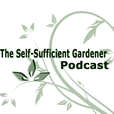
Summary: Disclaimer - I fire off a couple of minor curse words in this episode. I have been really avoiding this topic for like forever but two things happened. The first is I've been meaning to rerecord Episode 33 of The Hunt Gather Grow Eat Podcast for some time. In that episode I tackled the question: Is meat sustainable? First of all I didn't do a good job with it. I was driving and I had none of my fact notes so the show was more me just giving some reasons and some things we can do. I got a ton of negative feedback - which is ok. I don't expect everyone to agree with me but obviously they couldn't refute facts because I didn't have a lot to give in that episode. Secondly I saw Soylent Green on TV again. The movie is kitchy because it was filmed in the 70's I think but it is also extremely scary. Overpopulation, starvation, homelessness and then everyone knows what Soylent Green (the food product) is made of. So last time I asked the question: Is meat sustainable? Today I answer that question definitively - the answer is: Not how we currently consume it. (http://theselfsufficientgardener.com/wp-content/uploads/2012/03/Microsoft-Excel-Book1_2012-03-15_14-09-50-242x300.jpg)Your own personal 1.5 acres! Again I know this topic just rubs people the wrong way. But I ask - can you look at what you are doing and make efforts to improve it? I think a lot of people that listen to this show consciously make an effort to eat sustainable foods. But for anyone who doesn't - why not? Is there an emotional attachment or a sense of being preached to? So tune in today (if you dare): *Why are massive herds of buffalo unsustainable? Well where are they right now? If you have a massive herd where would you put it exactly? *Sustainable means: of, relating to, or being a method of harvesting or using a resource so that the resource is not depleted or permanently damaged. Sustainable is a sliding scale. As long as you aren't completely ignoring the scale you are on the right path. *When you really examine some people who claim to be sustainable are they really? What methods contribute to sustainability? Which detract? *Can you not examine where you diet comes from and still call yourself an environmentalist? Well you can but did you know: In Central America, 40 percent of all the rainforests have been cleared or burned down in the last 40 years, mostly for cattle pasture to feed the export market—often for U.S. beef burgers…. Meat is too expensive for the poor in these beef-exporting countries, yet in some cases cattle have ousted highly productive traditional agriculture. —John Revington in World Rainforest Report Nutrients in animal waste cause algal blooms, which use up oxygen in the water, contributing to a “dead zone” in the Gulf of Mexico where there’s not enough oxygen to support aquatic life. The dead zone stretched over 7,700 square miles during the summer of 1999. —Natural Resources Defense Council Good article about nitrate contamination. http://www.thereporter.com/rss/ci_20169847?source=rss (http://www.thereporter.com/rss/ci_20169847?source=rss) To provide the yearly average beef consumption of an American family of four requires over 260 gallons of fossil fuel. —“Meat Equals War,” web-site of Earth Save, Humboldt, California That’s like having 5 - 55 gallon drums full of oil placed in your backyard every year. *This is not an indictment of meat but rather the way we produce it with current CAFO operations. *Is there a sustainable way? * Pasture raised animals. * Grass fed like nature intended. * Only problem here is it takes more land. *So is grass fed how we move forward? I wish it were that easy. Is intensive rotational grazing the way forward? I wish it were that easy (aside - I had to adjust my math - the previous calculations were from several years ago and didn't take other aspects both good and bad into account - THINGS CHANGED!):
